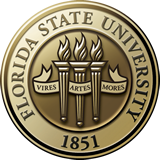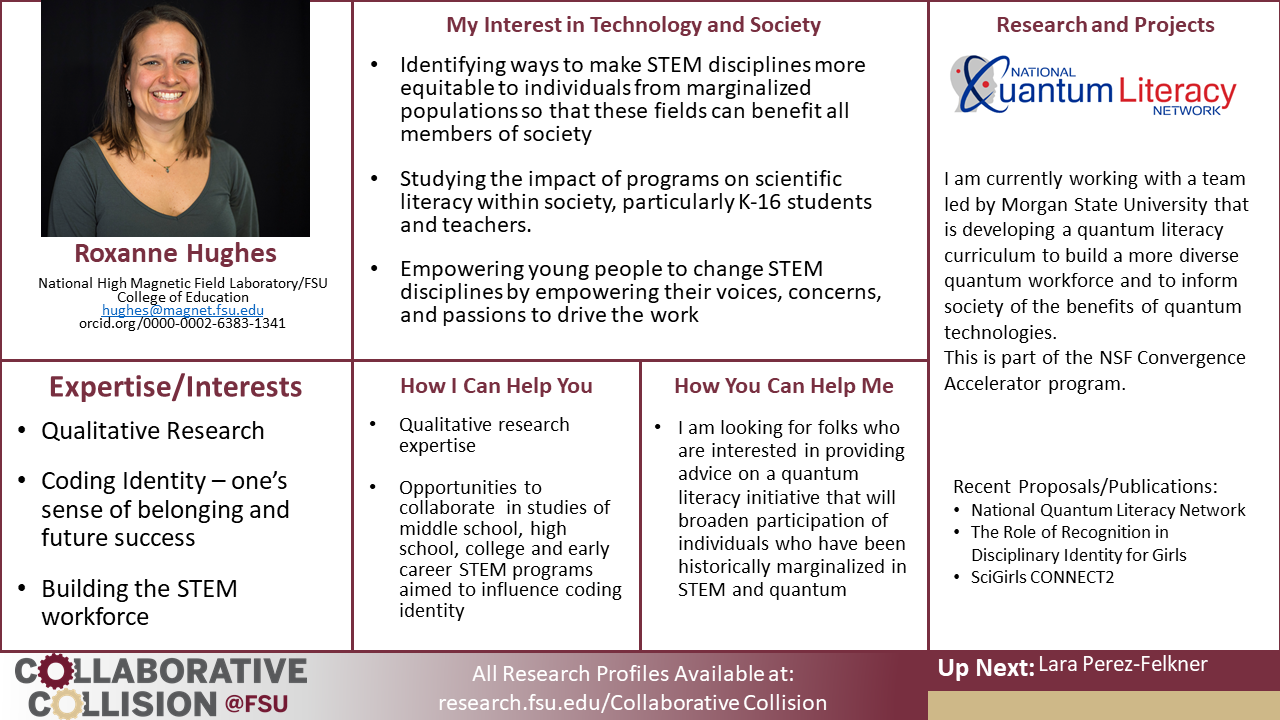Collaborative Collision: Community+
Community can mean many things. We teach, study, and serve in the Florida State University community. Our research contributes to the broader academic community both nationally and internationally, and many of us are members of one or more communities of practice. Of course, we also live, work, and play in the Tallahassee community.
Working with a community can also mean many things. Our artists, musicians, and performers help communities to tell their stories and create a sense of place and belonging. Beyond just displaying our work in the community we can help make them vibrant—enhancing quality of life and improving understanding and inclusivity between diverse groups of people. Many of our researchers engage communities in participatory research that helps to not only understand a problem, but also empowers community members to solve it. We help understand how our communities develop economically, socially, culturally, and spiritually, and many of us are working to improve the health, resilience, and opportunity of communities around the world. Some of us study communities themselves, seeking to better understand how the connections and fellowship between individuals leads to the creation of complex, interdependent systems. Communities aren’t just made up of people either— organisms, businesses, systems, and places also make up their own communities.
Community development, community performance, community engagement, community health, community resilience—these are all community plus something else, and without the something else they don't quite work. So, this spring Collaborative Collision: Community+ is welcoming anyone and everyone who’s research, scholarship, or creative pursuits involve community— however you choose to define it.
Collaborative Collision: Community+ featured presentations from 42 researchers interested in collaborating on community-focused projects, including participants from STEM, Health, Social Sciences, and Humanities disciplines. Participant slides and recorded presentations are available for download on our Community+ research profiles page.
We were also honored to welcome Dr. Matthew McCarville, Vice President for Education & Data Strategy at MTX, to open the program with a discussion on Leveraging and Building Community Data.
Learn more about the teams that were assembled as part of this program below.
DeepCare
Artificial Intelligence & Quality of Life in Older Adults at Risk of Alzheimer’s Disease and Related Dementia
Our goal is to show preliminary efficacy of AI-based interventions for improving two quality of life health indicators, emotional well-being and social connectedness.
Accelerator Winner ($50,000)
Energy Resilience
Developing Shared Strategies for Improved Resiliency of the Future Grid
Our team will model how the COT Utilities’ power grid interconnects with the FSU 15kV medium voltage distribution grid —essentially a grid within a grid, and the perfect laboratory to explore strategies before scaling them community-wide.
Accelerator Finalist ($40,000)
Environmental Communication
Exploring Interdisciplinary Strategies and Practices for Efficient and Effective Participatory Environmental Communication with a Focus on Underserved Communities
This project will have the following overarching goals: developing a general strategy and exploring new practices of participatory environmental communication (applicable using resources available to ordinary communities, such as public-domain information and open-source software).
Accelerator Finalist ($25,000)
Diversity in STEM
African Americans and Hispanic individuals are severely underrepresented in science, technology, engineering and mathematics (STEM) disciplines. We will conduct focus groups with students at five Leon County Middle Schools to understand what motivates and excites them about STEM. We will then use this information to develop an intervention to help increase diversity in advanced science and math courses.
Accelerator Finalist ($10,000)
Community Health and Wellness
Promoting Physical Activity In Nontraditional Households: A Mentor-Guided Physical Activity Program
We hypothesize that an online mentor-guided physical activity (MGPA) program will improve preschool children’s Physical Activity (PA) levels, PA-associated behaviors and mental wellbeing while also improving grandmothers’ PA levels and levels of mental stress.

